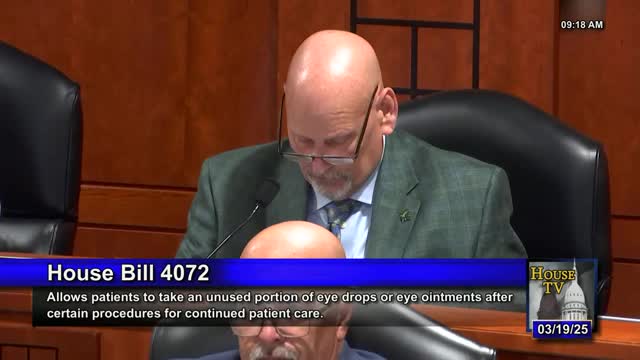Committee hears bills to join Physical Therapy Licensure Compact to ease cross‑state practice

Summary
Lansing — The House Health Policy Committee took testimony on House Bills 4101 and 4102, a bipartisan package to authorize Michigan’s participation in the Physical Therapy Licensure Compact and related implementing provisions.
Lansing — The House Health Policy Committee took testimony on House Bills 4101 and 4102, a bipartisan package to authorize Michigan’s participation in the Physical Therapy Licensure Compact and related implementing provisions.
Proponents said the compact preserves state licensing authority while allowing eligible Michigan licensees to purchase a compact privilege to practice in other member states without securing a separate state license. “The process is faster and more efficient, so it allows for improved access and choice of physical therapy providers for everyone, especially in underserved areas of the state,” Jeff Rosa, compact administrator for the Physical Therapy Compact Commission, told the committee.
Representative Rob Beierlein, sponsor of the bills, said joining the compact would help address workforce shortages and improve access in rural communities and through telehealth. “By becoming a member state, Michigan will expand opportunities for licensed professionals while increasing access to essential therapy services for our residents, including those in rural and underserved communities,” he said.
Witnesses stressed the compact’s public‑protection features: a shared data system that captures licensure and disciplinary information, background checks and continuing‑education requirements. Rosa said the compact preserves the state‑based licensure system and gives the Michigan Physical Therapy Board authority to take action in Michigan; the state may also charge a state fee in addition to the compact privilege fee. A witness said there is typically an additional fee (mentioned in testimony as about $90) to purchase a compact privilege for a remote state.
Committee members asked about costs to the state, fiscal impacts and how quickly benefits would appear. Rosa said states sometimes incur a one‑time cost to interface licensing databases with the commission’s data system; other states required little or no work. He also said the compact commission has been active since 2017 and funds operations through compact‑privilege sales; it had not required an annual state assessment in practice.
Members also raised jurisdictional questions about discipline and telehealth practice. Rosa explained that the Michigan board may act against a compact privilege used to practice in Michigan and that action can terminate an individual’s compact privileges in other member states; the home state (the state that issued the license) retains authority over the license itself.
Professional groups and academic programs submitted cards in support, and Brian Gilbert, president of the American Physical Therapy Association of Michigan and a former licensing board chair, testified in favor of the bills. There was no committee vote at the hearing.

